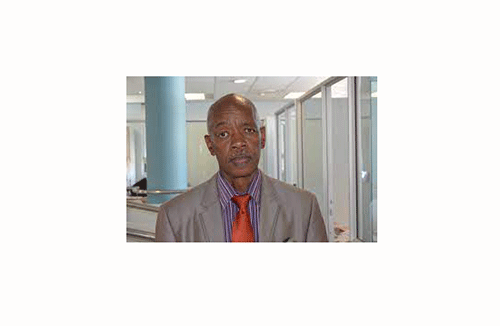I enjoy reading Prof. Makala Lilemba’s musings in New Era. His thoughts are always deep and original. His reflections on the Eastern concept of philosophy (New Era, 31 March 2023) were very instructive.
However, it is not on his suggestion that Namibians can learn a lot from Buddha and Confucius that I want to comment on in this rejoinder – much as that proposition is appreciated.
I want to expand on the second paragraph of his piece, which reads: “The Caucasian race has been at the forefront to claim knowledge all over the world as theirs…”
I could not agree more with him on that assertion, and I should perhaps start by saying words are not necessarily neutral, but they are, more often than not, value-laden. As Chomsky (2020) would teach us, words can create, design and propagate a system of doctrines and beliefs to support a racist narrative.
For example, in a typical Eurocentric collective psyche, words like laziness, corrupt, less intelligent, less imaginative, dishonest and inefficient are associated with people of African descent. I should hasten to add here that I am not implying that all people of European descent are Eurocentric.
The world is organised in such a way that Western knowledge and cultural structures dominate the world. This image is reinforced by socio-economic, political and cultural factors. Eurocentric values have come to be accepted as ‘universal standards’.
As a result, most of us, knowingly or unknowingly, use Western lenses to define social reality and truth claims. As Edward Said would say, we are outnumbered and out-smarted by the prevailing Western consensus that regards the black race as a culturally inferior people.
When I started to reflect seriously on Pan-Africanism, I came to the “sobering” realisation that this was about who we were as a people based on our lived experience. As Ali Mazrui said, “A white Marxist could cease to be a Marxist, but he cannot cease to be white”.
Equally, we cannot cease to be African. To paraphrase, the great Pan-Africanist of all time, Robert Mangaliso Sobukwe, being pro-African does not necessarily mean being anti-white.
Pan-Africanism is about defining ourselves so that we can stand tall and relate to others on equal footing. Thabo Mbeki (2004) in his seminal book, Africa Define Yourself, says: “…. African Renaissance means we, ourselves, and not another, determine who we are and what we stand for…”
The black race went through a trail of human misery and degradation. For example, the Trans-Atlantic slave trade, colonialism and all manner of discrimination and dehumanising experiences.
This, in turn, has led to an inferiority complex and negative self-image because, for the most part, we have been defined by the West in a Western language – and not in the most positive of terms, to say the least.
This definition has mainly been in the shadows of others where we are defined as the “other” or “outsiders” who are “not good enough” according to Eurocentric standards.
Last year I was lecturing history at a local college and when I told my students that some parts of Africa had universities, the University of Timbuktu in West Africa, before colonialism and that Ethiopia and the Congo had a written script before their encounter with the western world, they looked at me as if I were from another planet.
Martin Bernal (1991) in his famous, if controversial, book, Black Athena, argues that Greece, the cradle of Western civilisation, was at some point colonised by Egypt and their civilisation was, to a large extent, influenced by the latter. According to some respected scholars of Egyptology, ancient Egypt was predominantly black. Ancient Egypt had such a high civilisation and rigorous scholarship, so much so that Plato, the celebrated Greek philosopher was educated there.
It is also a well-known fact that Lucius Septimius Severus (AD 145 – 211) who became a Roman emperor in AD 193, was of African ancestry.
The point I am driving home here is that we need to walk tall with our heads high because we made a huge contribution to classical civilisation; we are not a footnote to world history.
Pan-Africanism calls for the democratisation of the asymmetric or unequal global knowledge system to create epistemological equity or knowledge fairness. It is a discourse about self-identification, self-definition, and self-affirmation.
As the saying goes “…as long as the antelope does not tell its own story, hunting will continue to be told from the hunter’s perspective”. For too long our story has been told by others.
We should create our own space to tell our own stories through music, poetry, literature, and all genres of artistic expression. Pan-Africanism deals with the reconstruction of distorted images about Africa and people of African descent in general.
After many years of political independence, Africans still struggle with what Bob Marley would call “mental slavery”. The problem with mental slavery or race-based inferiority complex is that, for the most part, the victim is not aware that he/she is a victim.
If you need your mind to liberate yourself, but your mind is captured, how then can you liberate yourself? This calls for a radical and conscious paradigm shift to transcend from the negative self-image to a positive one.
No one can do it for us. Africa, define yourself.


